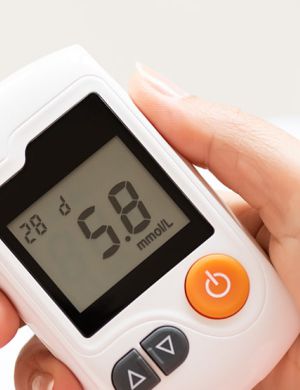
MHRA Guidance on the use of Real-World Data in Clinical Studies to Support Regulatory Decisions
There are vast amounts of data being collected on patients, for example, in electronic health records (EHR), and disease and patient registries. Such data are commonly called Real World Data (RWD), reflecting that they are collected while patients go about their regular lives, as opposed to being specifically collected in a clinical study. When such data are analysed, the information produced may be referred to as real-world evidence (RWE).
Digital health technologies’ can be used to gather health related data. They include sensors, wearables and other technologies, such as ingestible devices and implantables.
The MHRA is producing a series of guidelines to provide general points to consider for sponsors planning to conduct clinical research using RWD to support regulatory decision making.
The guidelines provide information to aid the design of studies aiming to provide evidence suitable for supporting regulatory decisions. This guidance is applicable to studies regardless of geographical location.
Areas of Consideration Prior to Submitting the Study Protocol Include:
- Will the database be used as the source population for recruitment, or be used to supplement other data sources?
- Will it include an appropriate population in terms of size, coverage and representativeness?
- It is recommended that statistical power calculations are used to assess whether the potential number of patients would enable a clinically important treatment effect to be detected.
- Are important baseline characteristics measured regularly and likely to be up to date?
- Will the database capture the interventions, outcomes and other study variables in sufficient detail, consistently and without bias, with the level of frequency and completeness that is required for the study? If not, how will data from the database be combined with additional data sources for the study? It is recommended that an observational feasibility study is conducted by the sponsor to assess the recent capture of study variables prior to undertaking a RWD study.
- How will changes in data collection during the study period be handled, both for individual patients, e.g., those who move between healthcare professionals or the whole population, e.g., changes in coding systems?
- How will any potential interoperability issues between health systems in the devolved nations of the UK, and internationally, be addressed? It is recommended that methods to cross reference and manage the data across different centres and countries, including common data models, are explored.
- Is the time between the occurrence of events and availability of the data to the study team suitable for the usage of the data in the study? How soon will data be able to be analysed after last patient, last visit? If used for monitoring adverse events, what impact would the availability of data have on the suitability of the database?
- What method will be used to link the database to additional data sources for the study? Is reliable linkage likely to be possible for the study population? Have the proposed linkage methods been validated previously?
- Which privacy and security policies apply to the use of the database? What restrictions apply on the transfer, storage, use, publication and retention of the data?
- What data quality checks are undertaken by the data controller? Which additional study-specific checks will be needed?
General Principles:
- As for all studies, data quality and assurance and appropriate data management oversight is essential.
- Data quality processes must be detailed in the study protocol and these must be appropriately validated to ensure that any process is fit for its intended use.
- Data quality checks should be conducted to ensure all data values are recorded, handled, and stored in a way that allows its accurate reporting, interpretation and verification.
- Data should meet agreed specifications and requirements defined by the sponsor to support the study requirements to ensure that any received data contains only expected data files and that all data elements are structured correctly as per the agreed specification.
Inspection:
The majority of MHRA Good Clinical Practice (GCP) inspections are carried out under the risk-based compliance programme. These can be either systems-based or study specific. Inspectors work in conjunction with assessors to identify studies for inspection based on a wide variety of factors including areas of interest e.g., ePROs, novel interventions or based on regulatory triggers.
Inspection of the systems and processes used for the oversight of RWD suppliers and the subsequent onward management of RWD data may also occur in conjunction with an inspection of a sponsor or Contract Research Organization (CRO). Areas of particular interest for review would include randomisation methods, data management, Investigational Medicinal Product (IMP) management, safety reporting, sponsor oversight and where externally provided databases are used to collect study data. Processes used to assure the integrity of the reported data are a common focus throughout any inspection of a licensing application.
Don’t miss out! Click here to stay in touch.
Categories
- Biopharma (47)
- Consumer Health (15)
- Cosmetics (8)
- Diagnostics (5)
- Digital Health (8)
- Food (2)
- Medical Device (100)
- OTC (3)
- Regulatory Intelligence (5)
- Standards (41)
Recent Blogs
Get the latest updates from Vistaar

CONNECT WITH US

Let's talk about how DDi can help you







